Your kitten has diarrhoea. What should you do?
It’s highly likely that at some stage in your kitten’s life you will find a runny poop in their litter tray. Normal poop or faeces or stools—different names for the same thing—have a firm consistency. If stools are loose, soft or watery your kitten has diarrhoea. Diarrhoea is a non-specific clinical sign of digestive (and sometimes emotional) issues and is not a disease in itself.
So, what should you do if your kitten develops diarrhoea? Your kitten's health is of utmost importance and with early intervention and proactive care—which includes consulting with your veterinarian—you can help them bounce back to their playful, healthy selves in no time.
Article
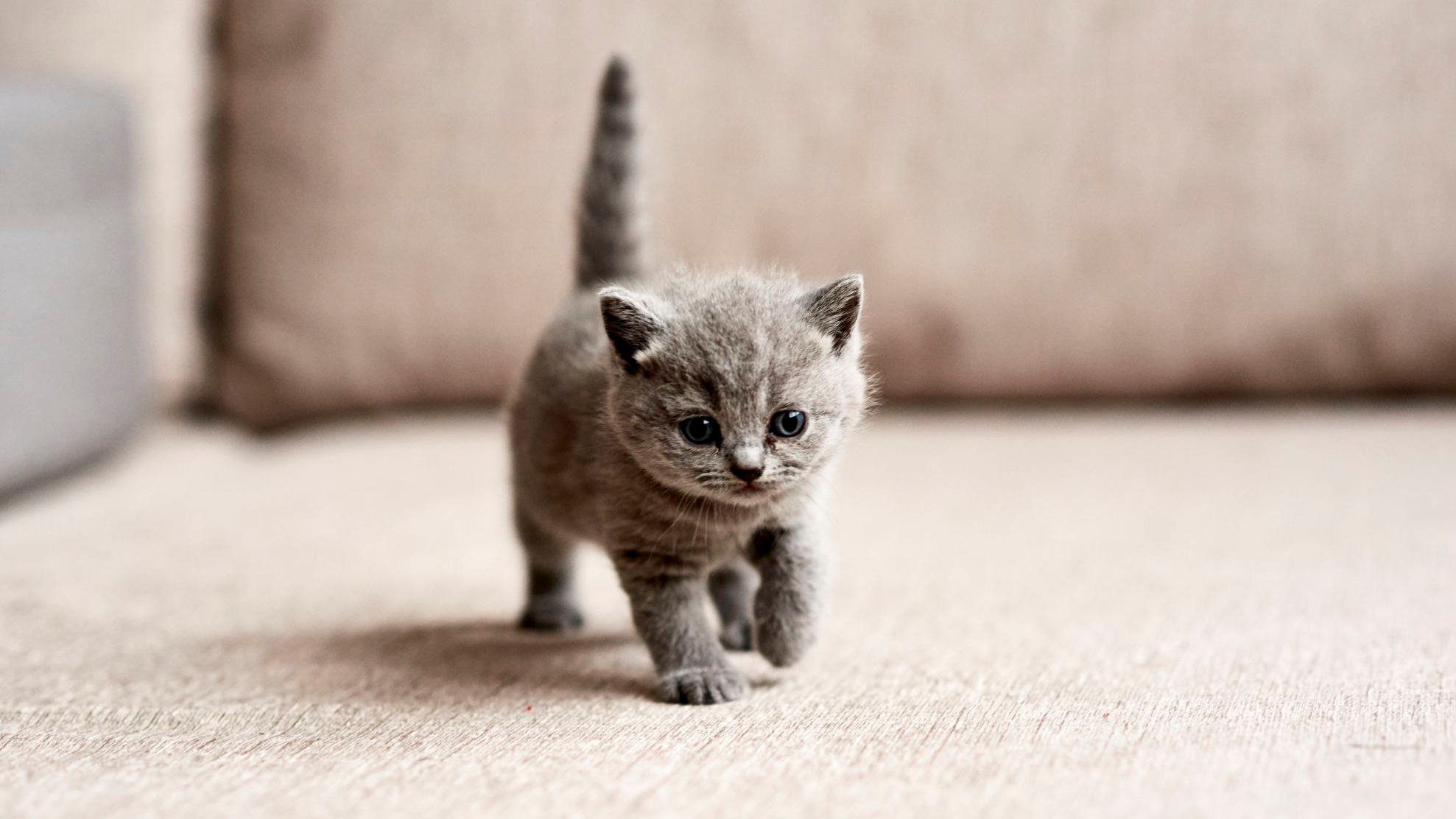
What causes diarrhoea in kittens?
Diarrhoea in kittens is not uncommon and can be caused by a range of factors from stress to dietary changes to underlying health conditions. Although a common symptom of digestive problems in cats and kittens, diarrhoea can be a sign of a more serious underlying health issue such as a gastrointestinal infection, parasites or dietary intolerances. Your kitten might have loose stools, soft stools, watery or even bloody stools. If you see blood in your kitten’s stool it’s important to contact your vet immediately for advice.
Your veterinarian may recommend diagnostic tests such as faecal examinations or blood work to identify the root cause of the problem. These tests will provide valuable insights into your kitten's health and guide the appropriate treatment.
When you find a runny stool, wash your hands thoroughly after handling your kitten or cleaning their litter box. Clean any soiled bedding, surfaces or litter trays promptly to minimise the risk of contamination. Additionally, keep other pets or young children away from the affected kitten until they recover.
Diarrhoea colour chart: your indispensable kitten care tool
A kitten diarrhoea colour chart is a visual representation that helps you identify and understand the potential causes of different-coloured diarrhoea in kittens. Although this chart can serve as a useful reference tool, it is important to note that it is only a general guide and not a definitive diagnostic tool. Each kitten is unique and accurate diagnosis requires a veterinarian's expertise. If you notice any changes in stool colour, consistency, frequency of defecation or other symptoms of illness in your kitten, it is always best to seek professional veterinary advice promptly.
Yellow diarrhoea—or yellow poop in layman’s terms—in kittens can be caused by various factors including sudden dietary changes. Kittens have sensitive digestive systems and sudden alterations can disrupt the balance of their intestinal flora..
Certain intestinal parasites such as giardia or coccidia can also cause yellow diarrhoea in kittens. Also, bacterial infections such as salmonella or E. coli may give diarrhoea a yellow colour.
Black diarrhoea (black poop) in kittens is known as melena and can indicate a more severe underlying issue. Melena is often a result of bleeding in the upper digestive tract, such as the stomach or small intestine. This bleeding can be caused by ulcers, ingestion of foreign objects or certain infections. If your kitten has black poop, contact your vet immediately.
White poop or pale-coloured diarrhoea in kittens is not very common. It may indicate a problem with the liver or gallbladder. Any interference with the production or release of bile from these organs can result in the absence of normal stool colour. Kittens experiencing white diarrhoea should be examined by a veterinarian promptly to determine the cause and appropriate treatment.
Green diarrhoea (or green poop) in kittens can be caused by several factors including inflammatory bowel disease, intestinal blockages or certain intestinal parasites. Some bacterial infections such as Clostridium or Campylobacter can give your kitten green diarrhoea. These infections are usually accompanied by other symptoms like vomiting and lethargy.
Green stools might also be the result of your kitten eating excessive amounts of green-coloured foods, like grass.
Ways to treat kitten diarrhoea
What should you do when your kitten has loose stools? The treatment for kitten diarrhoea depends on the underlying cause and severity of the condition. The first step when you notice your kitten has diarrhoea is to evaluate faecal consistency—are the stools just a little bit soft or are they runny and liquid? Additionally, consider other symptoms your kitten may be experiencing such as vomiting, loss of appetite, lethargy or dehydration. Understanding the overall state of your kitten's health will help you determine the best course of action.
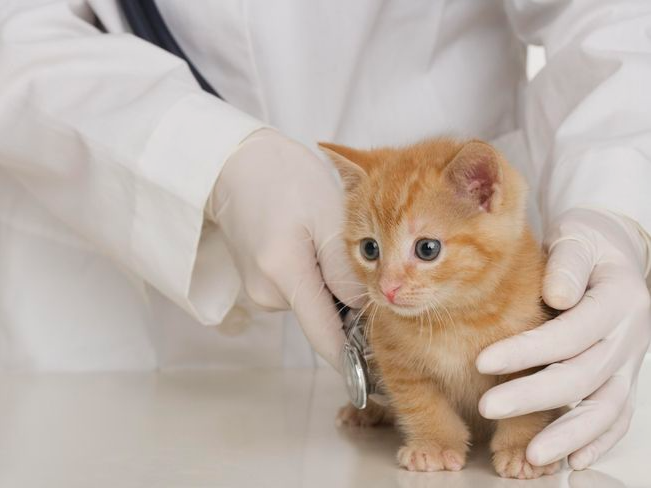
First step, consult your vet
Contact your vet as soon as you notice your kitten has diarrhoea. Describe the faecal consistency and let them know if your kitten is still bright and eating well or if they have other signs of illness. Your vet will be able to provide professional guidance based on your specific situation. In many cases, dietary changes can be a trigger for diarrhoea in kittens.
If you recently switched your kitten's food or introduced new treats, it's possible that their digestive system is reacting negatively. While mild cases of diarrhoea may resolve on their own, it's always better to seek expert advice to rule out any underlying health issues or potential complications. Your vet may want to run some tests, like faecal examinations or blood work, or may be happy to advise some steps for you to follow at home.
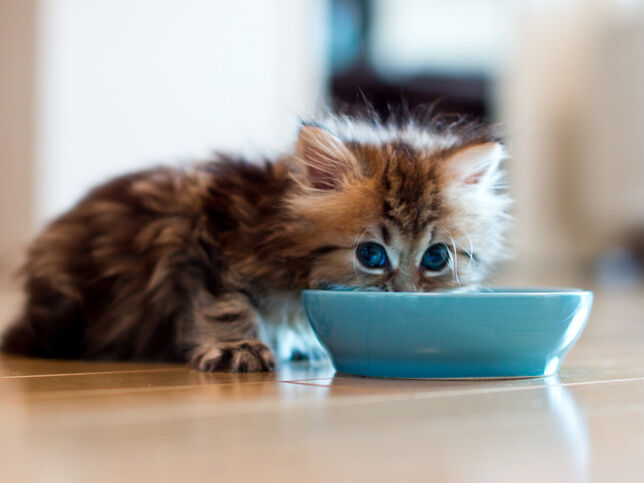
Home remedies for kitten diarrhoea
Home remedies that your vet may suggest could include making temporary adjustments to your kitten’s diet. Your vet may want to temporarily adjust their diet to bland, easily digestible food such as boiled chicken and plain rice.
This gentle approach can help soothe their stomach and alleviate diarrhoea. Avoid feeding your kitten milk or dairy products. It’s a little-known fact that while some cats can drink milk without any issues, many cats are lactose intolerant, which can worsen their symptoms.
Adding a small amount of plain, cooked pumpkin to your kitten's food may help firm up their stools. Pumpkin is high in fibre and can provide some relief for diarrhoea. However, it's essential to consult your veterinarian for the appropriate dosage and to ensure it is suitable for your kitten's specific condition.
What else might your vet suggest?
Another suggestion your vet may make is to ensure your kitten has fresh water and to encourage them to drink regularly. Diarrhoea can quickly lead to dehydration. Your vet may recommend providing your kitten with an oral rehydration solution which will help restore electrolytes lost through diarrhoea.
Your vet may also recommend specific probiotic supplements designed for cats. Probiotics are beneficial bacteria that can help restore the balance of the gut flora and promote healthy digestion. These can be beneficial in cases of mild diarrhoea.
Depending on the outcome of any tests that were performed, your veterinarian may prescribe specific medicines to treat diarrhoea in your kitten. These medicines may include antibiotics to treat bacterial infections or anti-parasitic medications to eliminate parasites.
No matter what the cause of diarrhoea, it's always wise to maintain good hygiene to stop the potential spread of infection.
Aside from medical causes, diarrhoea in kittens may also be caused by stress. If your kitten has loose stools it’s a good idea to keep them in a calm and comfortable environment away from any potential stressors. Provide a cosy and quiet space for them to rest and recover.
Remember, it is essential to consult a veterinarian before administering any treatments to your kitten. They will assess your kitten's condition, provide an accurate diagnosis and recommend appropriate treatment options. Keep in touch with your vet throughout the process, providing updates on your kitten's progress or any changes in their condition. They will guide you through the recovery process and advise you on when it's safe to reintroduce their regular diet.
No more runny poop, now what?
Once your kitten’s stools have returned to a normal consistency you can take some simple preventative measures to help reduce the chances of your kitten experiencing diarrhoea in the future.
- Gradually transition your kitten to new foods to give their digestive system time to adjust
- Ensure they receive a balanced, high-quality diet suitable for their age and breed
- Keep up to date with their worming regimes
- Make sure their living environment is kept clean and free from potential toxins
- Provide regular veterinary check-ups to catch any underlying health issues early on.
The information provided here on kitten diarrhoea is for general guidance and does not substitute professional veterinary advice. Every kitten is unique and their healthcare needs may vary. If you observe symptoms of kitten diarrhoea, or if you have any concerns or questions, always consult with your vet who can offer tailored advice based on your kitten’s specific situation.
Related articles
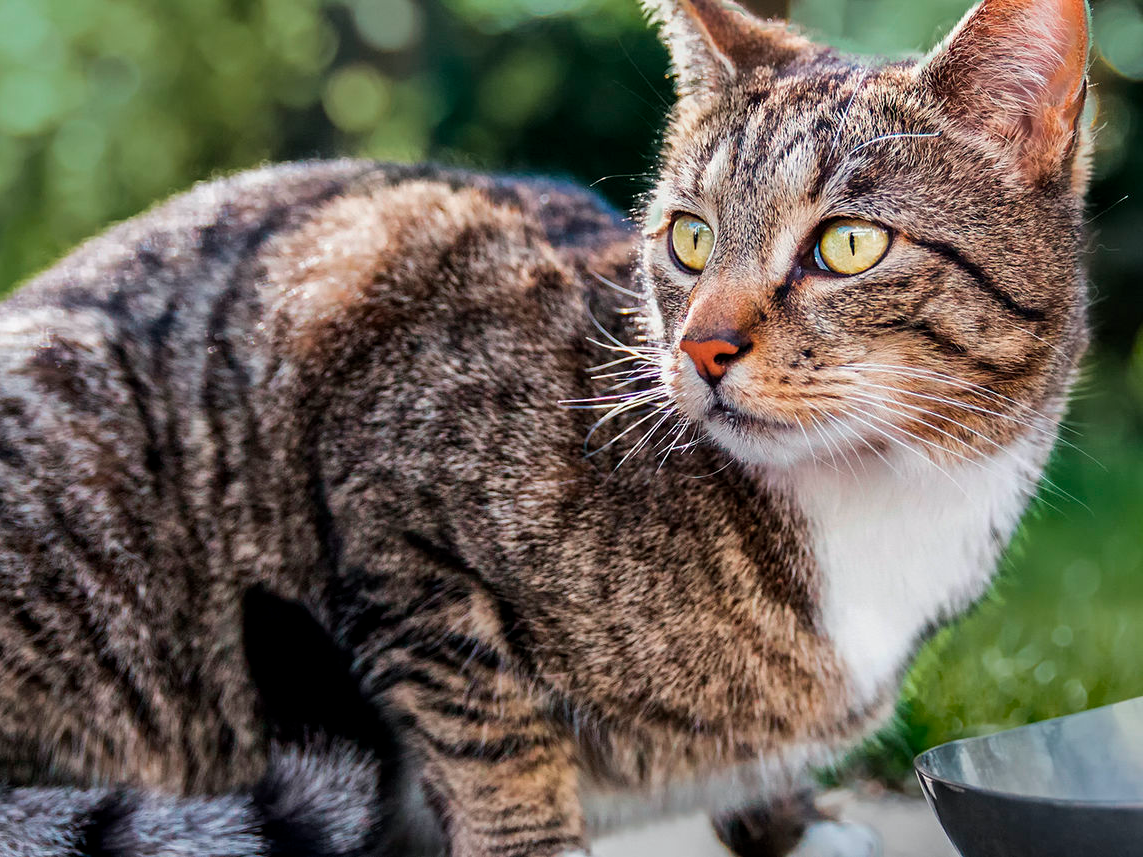
Common cat digestive problems
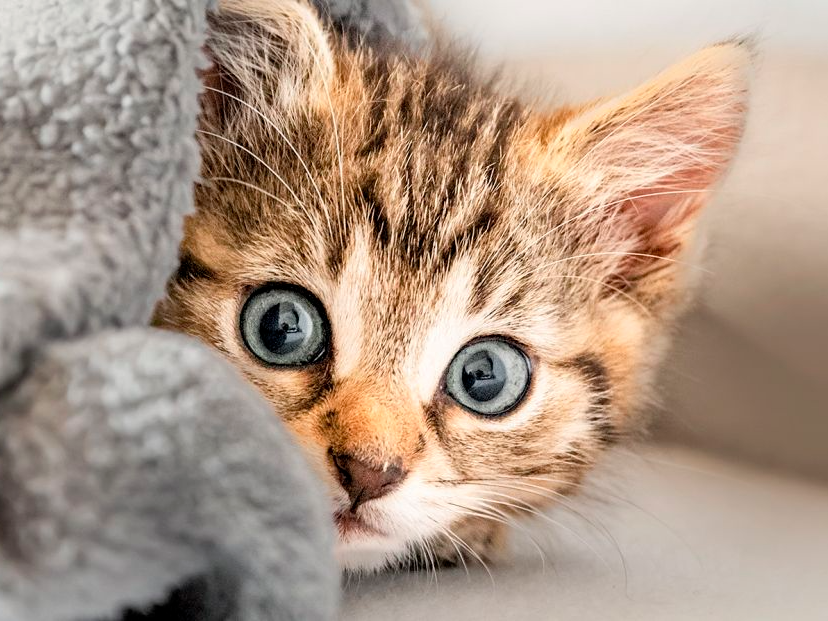
Kitten illness symptom checker
Like & share this page